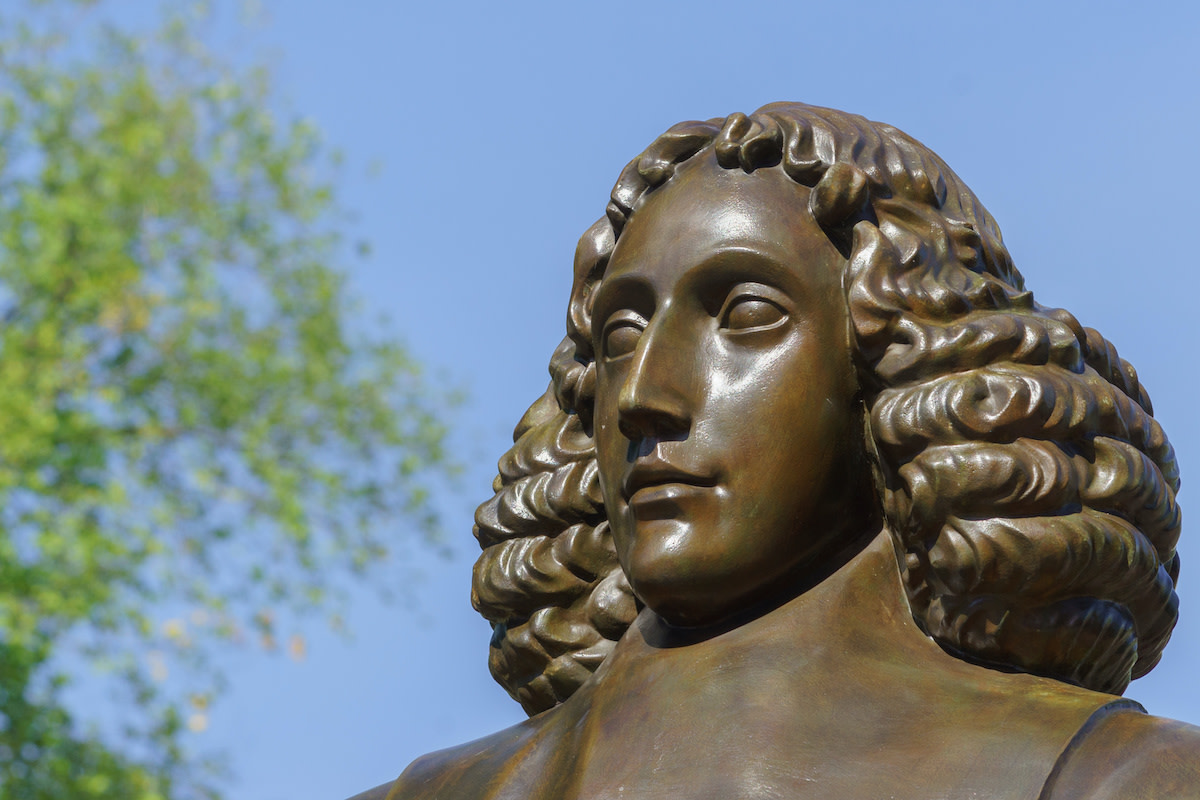A Guide to Baruch Spinoza’s Life and Philosophy
Written by MasterClass
Last updated: Oct 18, 2022 • 3 min read
Baruch Spinoza was a seventeenth-century Dutch philosopher who rejected tradition and focused his writings on rational thought, determinism, and moral relativism.
Learn From the Best
Who Was Baruch Spinoza?
Baruch Spinoza (1632–1677) was a seventeenth-century Dutch philosopher. Along with the philosophers Gottfried Wilhelm Leibniz and René Descartes, Baruch Spinoza is considered one of the first rationalist philosophers. Spinoza’s philosophy influenced the Age of Enlightenment in Europe during the eighteenth century and continued to inspire modern thinkers like Hegel, Freud, and Albert Einstein.
A Brief Biography of Baruch Spinoza
Baruch Spinoza lived a contemplative and controversial life that rejected the traditional beliefs of his era.
- Childhood and education: Baruch Spinoza’s parents were Sephardic Jews who fled Portugal because of the Spanish and Portuguese Inquisitions. Spinoza’s family landed in the Netherlands, where Spinoza was born in 1632. Raised in a Portuguese-Jewish community, Spinoza attended a Talmud Torah school in Amsterdam. He studied Hebrew and the works of Jewish philosopher Maimonides.
- Excommunication: Despite being a skilled Hebrew scholar, Spinoza was influenced by outside ideas from Aristotle, the Greek Stoics, Thomas Hobbes, and René Descartes. Spinoza began developing radical new ideas about the nature of God and reality. In 1656, Jewish religious authorities in Amsterdam issued Spinoza a writ of herem, a formal complaint that effectively banned him from the community. The written statement accused Spinoza of atheism, “abominable heresies,” and “monstrous deeds.” Spinoza left Amsterdam and eventually landed in the Dutch city of The Hague, where he worked as an optical lens grinder.
- Published works: A few years after his excommunication, Spinoza published his first book, The Principles of Cartesian Philosophy (1663), which would end up being the only work published under his actual name. Spinoza used pseudonyms to publish later works, including the controversial Tractatus Theologico-Politicus (1670), translated as Theological-Political Treatise. Spinoza’s views criticized scripture in both the Jewish and Christian traditions. Spinoza believed that the Torah and the Bible are human texts without divine inspiration. Spinoza died in 1677 at the age of forty-four. His most influential work, a book written entirely in Latin called Ethics (1677), was published posthumously that same year. Spinoza's Ethics is filled with definitions and axioms about moral principles related to the human condition.
- Influence and legacy: Spinoza's work was largely rejected during his lifetime, but it lived on to influence philosophers for centuries, including Immanuel Kant, Friedrich Nietzsche, and Karl Marx.
5 Major Themes of Spinoza’s Philosophy and Works
Spinoza’s philosophy revolved around his belief in an ultimate substance that dictates reality.
- 1. Rationalism: Spinoza was a rationalist who prioritized reason and judgment over opinion and superstition.
- 2. Determinism: Spinoza believed that free will was an illusion. For Spinoza, the natural laws of the universe dictate a cause-and-effect relationship that is beyond human understanding or control.
- 3. God or nature: Spinoza believed in God’s existence within the context of pantheism rather than the context of traditional religion. Spinoza wrote about “deus sive natura,” meaning “God or nature,” to describe his belief that God is the core substance of the universe. Spinoza argued that human beings can attain “true blessedness” by growing knowledge of God as a set of natural laws and developing an intellectual love of God. Spinoza’s conception of God as the sum of natural laws rather than a specific entity was a radical idea at the time, but it would later be embraced by theoretical physicist Albert Einstein.
- 4. Moral relativism: Spinoza rejected the ideas of Judaism and Christianity that there is such a thing as good and evil. Spinoza instead believed that the nature of the human mind is to categorize the things that improve well-being as good. Spinoza used the Latin word “conatus” to describe mankind’s inherent desire for self-preservation.
- 5. Monism: Spinoza’s metaphysics rejected Cartesian dualism and assumed that everything is a part of God. Spinoza wrote about a monistic worldview where all particular things come from one ultimate substance and reality.
Ready to Think Deeply?
Learn what it means to think like a philosopher with the MasterClass Annual Membership. Dr. Cornel West, one of the world’s most provocative intellects, will guide you through fundamental questions about what it means to be human and how to best love your community.
